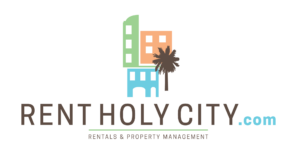Deciding whether to rent or sell a home is one of the most challenging questions to answer, considering the countless pros and cons of every decision. In this case, homeowners like you should carefully weigh the advantages and disadvantages of renting or selling your home.
To help you decide better, here are a few of the arguments for and against each decision.
Advantages of Selling Your Home
When you sell your home, you can get a more significant, one-time payment for it. You can use the money for your immediate needs, investment, or other intended purposes. But apart from that, here are other benefits of selling your house.
- Result in a bidding war: When your property is in a prime spot, has many features that prospective buyers would love, and is generally a steal, the bidding would be most advantageous. Since many will be competing for the property, you can get a higher price for it than what you initially expected.
- Tax Deductions: If you decide to sell your residential property, the cost of putting the property in the market, along with the actual agent commissions, advertising costs, and escrow and legal fees, can be deducted from your taxes.
- More room for flexibility: You may soon meet unexpected expenses, and as your family grows bigger, the space you once occupied may not be enough to welcome new family members or necessary house equipment. In this case, you might be forced to move to another property and sell the old one. Selling your house can earn you money to be spent on building a new, bigger, and more comfy one.
- Retirement Savings: The good thing about real estate is that over time, its value increases. If you own one and later on you want to sell it, the proceeds can be your retirement fund.
Advantages of Renting Your Home
When you rent your home, you might need to be hands-on in keeping the property in pristine condition. This small sacrifice is part of property management and is repaid by these benefits:
- Prime Property: If you’re leasing a home in a great area with a high image and fantastic location, you can demand a high rental price for it. And if your home is near location-dependent businesses like restaurants or retail stores, you can even peg a higher rental rate.
- More Working Capital: If you rent out your property, you won’t have to tie your money to real estate. In this case, you will have a steady monthly income flow that you can use to invest or open a business.
- Additional Source of Income: If you own the entire building or have a spare room, it can be an additional source of income for the business by making it a rental space or property.
To be honest about it, no hard and fast rule will provide a clear-cut answer to the question of whether or not you should rent your home. More often than not, the decision will be better if you consider a combination of personal circumstances, tax, and financial situations.
As you go through your options, it’s wise to bring a financial planner and a real estate agent to walk you through the process and help you find a suitable lessee or house buyer. Taking risks is an essential part of venturing into real estate. However, if you and your family’s financial future is on the line, taking risks without guidance and calculation is akin to suicide. Seek the help of experts and make a wise and sound decision.
